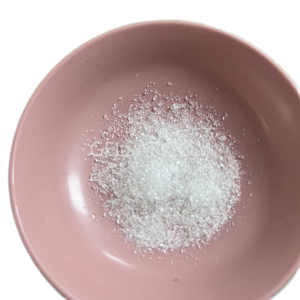Sodium polyacrylate, often known for its super absorbent properties, is a polymer widely used in various products like diapers, water-absorbing crystals, and more. Despite its benefits, there are common questions about its safety and environmental impact. This article aims to provide a comprehensive understanding based on the most frequently asked questions.
Is Sodium Polyacrylate Harmful to the Environment?

Sodium polyacrylate is not inherently harmful to the environment, but its environmental impact depends on how it is used and disposed of.
Degradation: Sodium polyacrylate is not biodegradable. This means that it will not naturally decompose in the environment in a short period of time, but sodium polyacrylate will degrade over time and light, but the natural degradation time may be as long as 20-30 years.
Water and Soil Contamination: Improper disposal of sodium polyacrylate products can lead to pollution of water bodies and soil. While it is non-toxic, large amounts can disrupt the natural balance of ecosystems.
Recycling and Disposal: Proper disposal and recycling practices are crucial to minimizing its environmental impact. Most products containing sodium polyacrylate should be disposed of according to local regulations to prevent environmental contamination.
Is Sodium Polyacrylate Natural?
Sodium polyacrylate is not a natural substance. It is a synthetic polymer, created through chemical processes in industrial settings.
Chemical Composition: It is composed of long chains of acrylate compounds, which are derived from petroleum-based sources.
Manufacturing Process: The production involves polymerization, a chemical reaction that links acrylate monomers into large, repeating chains, resulting in the super absorbent properties.
Is Sodium Polyacrylate Safe?
Sodium polyacrylate is generally considered safe for use in consumer products, but there are some considerations to keep in mind.
Non-Toxic: It is non-toxic and does not pose significant health risks when used as intended. This is why it is commonly used in personal care products like diapers and sanitary pads.
Inhalation and Skin Contact: In its powder form, inhalation of sodium polyacrylate dust can be irritating to the respiratory system. Direct skin contact is generally safe, but prolonged exposure to large amounts may cause irritation.
Food Safety: Sodium polyacrylate should not be ingested. It is not approved for use in food products due to potential health risks if consumed.
Is Sodium Polyacrylate Safe for Plants?
Sodium polyacrylate can be beneficial for plants(However, it is not the most plant-friendly soil moisture retainer on the market because excessive sodium ions can cause soil salinization), particularly in water retention applications, but there are some important considerations.
Water Retention: It can significantly improve soil’s water retention capacity, making it useful in agricultural and horticultural applications, especially in arid regions.
Soil Structure: By holding water, it helps to keep the soil moist for longer periods, which can be beneficial for plant growth and root development.
Concentration and Usage: Overuse can lead to overly saturated soil, which might hinder air flow and negatively impact plant roots. It’s crucial to use the correct amounts to avoid such issues.
Sodium polyacrylate is a versatile and widely used polymer that offers significant benefits in a variety of applications. While it is generally safe and non-toxic, its environmental impact and use should be managed responsibly. It is not a natural product and its synthetic nature means it is not easily biodegradable. When used properly, it can be a valuable tool to improve the water retention capacity of soil, which is beneficial for plant growth in agriculture and horticulture. Proper handling, disposal and application are key to ensuring its use is safe for both humans and the environment. If you have sodium polyacrylate materials to dispose of, please contact GELSAP for the correct disposal methods of sodium polyacrylate.

